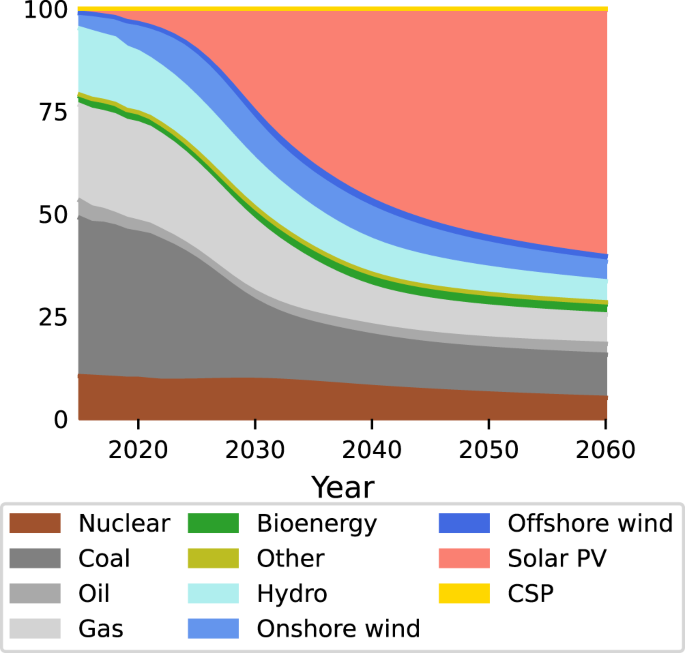- cross-posted to:
- [email protected]
Still coal in 2060?
Uncertainties arise, however, over grid stability in a renewables-dominated power system, the availability of sufficient finance in underdeveloped economies, the capacity of supply chains and political resistance from regions that lose employment.
that only addresses one of the issues above.
Yes?
then you see there are multiple reasons why coal may still be in use in 2060?
“may” is maybe. Lets talk again about it in 36 years.
not here to set a wager, I was just trying to help explain the authors’ reasoning.
Indeed that’s strange, and the flat slope in 2060 seems inconsistent with declared net-zero policies of China and even India. Russia has no such policy, but still strange to assume continuation of current government concepts there until 2060. (you can see the regional breakdown in supplem Fig 1. )
I’m guessing it has more to do with underdeveloped countries still relying on the simplicity of coal power.
Regarding the map - an annual average cost is not so meaningful - in higher latitudes solar is not enough in winter - especially where it’s mostly cloudy during the first half of winter. Wind helps the balance but not everywhere, always. Of course, the sophisticated models behind the article know all that, the issue is simplistic presentation. I note “we assume hydrogen is used for seasonal storage” - this may be rather optimistic - how many dark months can that cover?
I would have thought Iceland would be geothermal.
By levelized cost of just the energy. Taking into account energy storage at different renewable mixes makes it a little worse for intermittent source. All that to say, nuclear can still be useful and cheaper in some situations.
Given that energy usage also increases about quadratically, this means that net CO2 emissions will roughly remain equal till 2060.
This is not a good graph.





